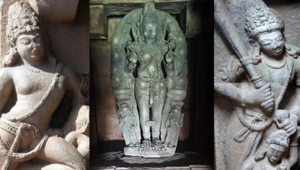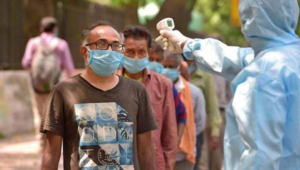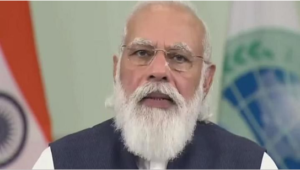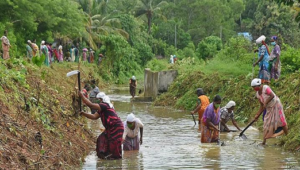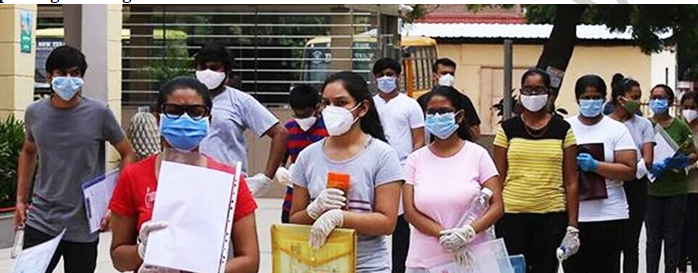
NEET hasn’t created the equality of opportunity it had promised.
It is biased towards CBSE curriculum and gives unfair advantage to students from privileged backgrounds.

Is the National Eligibility cum Entrance Test (NEET) a flawed, eccentric approach that causes injustice and goes against the spirit of the Constitution? The Justice A K Rajan committee, appointed by the state government of Tamil Nadu to examine whether NEET is an equitable method of selection, thinks so. Its report lends credence to the belief that NEET tends to give an advantage to students from privileged backgrounds. It also observed that NEET, in terms of orientation, is biased towards the Central Board of Secondary Education (CBSE).
The Tamil Nadu government has passed an Act seeking an exemption from treating NEET as the sole and mandatory requirement for medical admission in the state. The Act, which is yet to get approval from the President.
- The Justice A K Rajan committee was appointed by the state government of Tamil Nadu to examine whether NEET is an equitable method of selection.
- Its report lends credence to the belief that NEET tends togive an advantage to students from privileged backgrounds.
- It also observed that NEET, in terms of orientation, is biased towards the Central Board of Secondary Education (CBSE).
- In the section titled ‘Size of coaching market’,the report brings out two poignant facts.
- One, by inadvertently creating a “market for coaching”, NEET has helped to create an “extractive industry of coaching” as an essential condition for clearing it.
- Two, the coaching fees are not only high, but are beyond the reach of many, especially the poor and marginalised.
- Acting upon the committee’s recommendation, the Tamil Nadu government has passed an Act seeking an exemption from treating NEET.
- The Act, which is yet to get approval from the President.
- An educational intervention which was introduced as a solution to foster equality of opportunity has turned out to be the primary cause of deepening inequality of participation and opportunity.
Important questions
- There are at least two important questions.
- Equality of opportunity:First, does NEET help foster equality of opportunity for everyone without unduly advantaging or disadvantaging anyone?
- Second, is NEET’s bias towards CBSE justifiable in an immensely diverse country like ours, where varied school curricula coexist with a highly unequal access to financial and educational resources and opportunities?
- The question here is: How can NEET promoteparity of participation when aspiring first-generation students from marginalised and poor households participate from a highly unequal position in the first place?
- NEET disregards the fact that the terms and conditions of participation are highly unequal and biased.
Way forward
- TheNational Education Policy (NEP 2020) envisions a curriculum and pedagogy which will promote holistic learning, social responsibility and multilingualism, among other things.
- It is important, therefore, to significantly restructure the focus of NEETkeeping in mind the spirit of NEP and varied school curricula in regional languages.
Conclusion
A restructured NEET, which does not require intensive and repeated coaching as a prerequisite and is not biased towards any board, can go a long way in promoting the parity of participation and nourishing the capacity to aspire, especially of the poor and marginalised.
Air India sale opens up a brighter future for aviation.
The government can now shake off the allegations of protectionism, foster fair competition, rid the civil aviation market of distortions, and enhance the opportunity for travel.
The biggest mistake relating to Air India was the decision to merge the erstwhile Indian Airlines into the flagship carrier. In 2007, in its report on the national carriers, Accenture had highlighted two factors as being responsible for their sub-optimal performance: an ageing fleet and the fact that the two existed individually.
The report had gone on to say that merger of the two entities and replacement of the ageing fleet would result in a profit of Rs 1,000 crore in the first year itself. Instead, in the three years following the merger in 2007 we have seen losses escalate from Rs 1,200 crore in the first to Rs 2,600 crore in the second to Rs 5,500 crore in the third. Each time, the management of the airline blamed the losses either on high fuel prices or intense competition or some other factor. The inescapable fact is that the airline today has accumulated losses of Rs 16,000 crore.
A new fleet was indeed acquired for the airline but with almost no planning. When an airline buys expensive aircraft such as the Boeing 777 that Air India acquired, route and fleet planning often starts six months before the aircraft start arriving. Instead, we had an extraordinary situation where Air India could not take delivery of three aircraft that had to remain parked at Boeing’s factory for more than three months as Air India did not have enough trained pilots and cabin crew.
Again, when Arvind Jadhav took over as managing director of Air India he quashed the recruitment of additional cabin crew after the process for it had been nearly completed. As a result, another eight months were spent hiring cabin crew. During this period hundreds of flights had to be either cancelled or were delayed, not because of a lack of pilots or planes but because of a lack of crew.
Why did Air India withdraw flights from routes where it had good loads and why were these routes given to private airlines? I have nothing against private airlines, I even fly one (Indigo) to keep my hours. But this decision seemed to be aimed at weakening the national carrier.
The merger itself was hastily carried out. The pilots of the erstwhile Indian Airlines were promised parity with Air India pilots. For three years, nothing was done about it. Discontent built up. Praful Patel managed to keep it in check while he was minister, thanks to constant negotiations. After all, if you have been promised something, you do expect it. The pilots were in a position to protest, unlike the cabin crew, ground staff and maintenance crew. Now, instead of looking for ways to resolve differences with the pilots who are on strike, the Air India management and particularly Jadhav has decided to “teach the pilots a lesson”. Matters have worsened to such an extent that even the executive pilots of the airline, who are management cadre pilots, have gone on strike in support of their colleagues.
When Jet Airways pilots went on strike a few years ago, I remember Naresh Goyal, the airline’s chairman, talking to pilots and pleading with them to go back to work. But Jadhav has decided that he will not even talk to the pilots. Even the Delhi High Court has noted this fact. It appears that the management wants to make the pilots scapegoats for its successive failures. It was looking for an alibi and feels that the pilots have provided it one.
There is a severe shortage of trained commanders across Indian carriers and this has been forcing airlines to hire expatriates – often those with less than the best skills. If Air India sacks the striking pilots they can easily get jobs in other airlines within three months. But the pilots want to work for Air India. They, however, also want their dues. In Parliament, we were told that Air India loses Rs 20 crore a day. It is surprising then the management is fighting over what is essentially a matter of a few crores.
What can be done? We in the Bharatiya Janata Party, or BJP, have always argued in favour of privatisation of Air India. If not full privatisation, at least a partial one can be carried out through disinvestment. This will bring in funds to run the airline instead of the government constantly raiding taxpayers’ money to feed it. The management of Air India should also be professionalised. The airline should not be allowed to become a training ground for officers of the Indian Administrative Service who have no knowledge of the aviation sector. Besides, there should be less interference from the ministry. I believe Air India is an important asset to Indian skies, and it has helped keep airfares in check. The moment the pilots went on strike airfares rose significantly. I hope this issue is resolved and the government takes some good decisions on the airline.
Coronavirus less likely to develop resistance to molnupiravir.
The cumulative number of COVID-19 vaccine doses administered in the country stands at 97.62 crore with more than 38 lakh jabs given on October 16, the Health Ministry said.
In run-up to India’s efforts to administer 100 crore COVID-19 vaccine doses, Union Ministers Mansukh Mandaviya and Hardeep Singh Puri on October 16 jointly launched an audio-visual song on the country’s inoculation programme. The song is produced and sung by Kailash Kher.
Coronavirus less likely to develop resistance to molnupiravir: Gagandeep Kang
You can track coronavirus cases, deaths and testing rates at the national and State levels here. A list of State Helpline numbers is available as well.
NATIONAL:Long-Covid may not be as fatal and hard-hitting as acute COVID-19 and mostly improve over time but it can worsen existing ailments such as diabetes and kidney diseases, healthcare experts said.
The criteria to objectively define long-COVID is still evolving, but WHO recently described it as a post-COVID-19 condition in individuals with a history of probable or confirmed SARS CoV-2 along with symptoms lasting for at least two months and cannot be explained by an alternative diagnosis. -PTI
· India logs 14,146 fresh Covid cases, 144 new deaths
India recorded 14,146 fresh COVID-19 infections in a day taking the cumulative cases to 3,40,67,719 while the death toll climbed to 4,52,124 with 144 more fatalities, according to the Union Health Ministry’s data on October 17.
Active cases have declined to 1, 95,846 and comprise 0.57% of the total infections. The national Covid recovery rate was recorded at 98.10%, the data updated at 8 am showed. -PTI
- AUSTRALIA
Melbourne to ease world’s longest COVID-19 lockdown as vaccinations rise
Melbourne, which has spent more time under COVID-19 lockdown than any other city in the world, is set to lift its stay-at-home orders this week, officials said on October 17.
By Friday, when some curbs will be lifted, the Australian city of 5 million people will have been under six lockdowns totaling 262 days, or nearly nine months, since March 2020. -Reuters
- ITALY
Protests greet debut of Italy’s workplace COVID-19 pass rule
Protests erupted in Italy as one of the most stringent anti-coronavirus measures in Europe went into effect on October 15, requiring all workers, from magistrates to maids, to show a health pass to get into their place of employment.
Police were out in force, schools planned to end classes early and embassies issued warnings of possible violence amid concerns that the anti-vaccination demonstrations could turn violent, as they did in Rome last weekend. -AP
- GUJARAT
Jungle safari in Gir forest opens to public after four months
Jungle safari to the Gir forest in Gujarat, the only abode of Asiatic lions, was on October 16 reopened for tourists after remaining closed for nearly four months due to the COVID-19 pandemic.
Petrol and diesel price hike | It’s Sabka Vinash not Vikas, says Rahul Gandhi.
Sabka vinash, mehangai ka vikas’: Rahul Gandhi slams Centre over fuel price hike
His remarks came as petrol and diesel prices continued to rise across the country for the fourth consecutive day on Sunday.
Facebook Twitter LinkedIn Pinterest Messenger
Attacking the Centre over the fuel price hike, Congress leader Rahul Gandhi on Sunday said the only growth the country is witnessing is that of inflation.
Citing a news report about the hike in fuel prices, the Congress leader tweeted “Destruction of all. Growth of inflation (Sabka Vinash. Mehangai ka Vikas) #Tax Extortion,” tweeted Rahul Gandhi.
His remarks came as petrol and diesel prices continued to rise across the country for the fourth consecutive day on Sunday.
Petrol and diesel prices reached an all-time high as fuel rates continued to rise by 35 paise/litre across the country for the fourth consecutive day on Sunday.
With the latest hike, the petrol price becomes Rs 105.84/litre while diesel will now cost Rs 94.57/litre in Delhi today. Oil companies started raising auto fuel prices last week.
Meanwhile, Minister of Petroleum and Natural Gas Hardeep Singh Puri on Saturday said that the consumption of petrol and diesel has increased as compared to the pre-COVID times, and the government is working towards price stability.
Kerala Rains: 21 Dead Due to Flash Floods, Landslides; IMD Says Intense Rains Likely To Reduce.
India Meteorological Department (IMD) predicted that the intense spell of rainfall activity over Kerala, Karnataka and Tamil Nadu and Pondicherry is likely to reduce from today.

The death toll from disastrous flash floods caused by heavy rains and landslides in hilly areas of two central Kerala districts rose to 21 as rescue workers recovered more bodies from the rubbles on Sunday. Prime Minister Narendra Modi spoke with Kerala Chief Minister Pinarayi Vijayan and took stock of the situation.
Kerala Floods: Over 6 Dead, Many Missing As Heavy Rains Wreak Havoc, Sabarimala Pilgrimage Deferred.
Meanwhile, the India Meteorological Department (IMD) predicted that the intense spell of rainfall activity over Kerala, Karnataka and Tamil Nadu and Pondicherry is likely to reduce from today.
State Revenue Minister K Rajan said the rescue workers have recovered 15 bodies from the debris and slush of the landslides that had hit various places of Idukki and Kottayam districts on Saturday.
Here are all the major developments that took place due to rain-related incidents in Kerala today:
19.30 pm: 4 trains between Tamil Nadu and Kerala partially cancelled
At least four trains travelling from Tamil Nadu to Kerala and Kerala to Tamil Nadu will face partial cancellations on October 17 and 18, as per Southern Railways.






